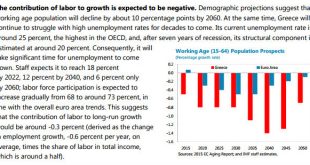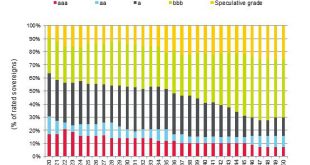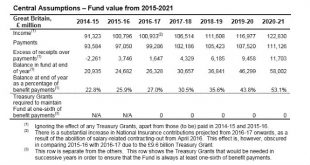The Eurogroup (part of which is pictured above) has produced a statement on the outcome of the latest debt talks with Greece. As ever with Eurogroup statements, it confuses more than it enlightens. So here is my attempt at translating Eurogroup-speak into plain English. __________________________________________________________________________________ The Eurogroup welcomes that a full staff-level agreement has been reached between Greece and the institutions. Phew. We got that through...
Read More »Have we done enough to prevent another financial crisis?
Notes from a talk given at Trinity Business School, Dublin, on 26th May 20164 Well, it depends what sort of crisis you mean. Have we done enough to prevent a crisis like the last one? Yes. We have scared ourselves so much about the dangers of disorderly bank failure that no way are we going to allow that to happen again – at least, not until we who lived through the crisis, and our children and grandchildren whom we tell about the crisis, are long gone and our legacy forgotten. No-one...
Read More »Where on earth is growth in Greece going to come from?
It's not going to come from people working more. Excerpt from the IMF's latest Debt Sustainability Analysis for Greece, just released: Oh dear. Quite apart from the negative contribution to growth, the prospect of unemployment taking 44 years to return to something approaching normality is simply appalling for Greece's population. I've looked in more detail at this here (Forbes).Well, if labour isn't going to drive growth, there's always investment, yes?Er, not really. The outlook for...
Read More »Keynes and the Quantity Theory of Money
"Best diss of the Quantity Theory of Money comes from Keynes", commented Toby Nangle on Twitter, referring to this paragraph from Keynes's Open Letter to Roosevelt (Toby's emphasis): The other set of fallacies, of which I fear the influence, arises out of a crude economic doctrine commonly known as the Quantity Theory of Money. Rising output and rising incomes will suffer a set-back sooner or later if the quantity of money is rigidly fixed. Some people seem to infer from this that output...
Read More »The safe asset scarcity problem, 2050 edition
This is a silly chart: Why is it silly? Just look at what it implies for government and investor behaviour - and the future of the ratings agency that issued it.S&P forecasts a serious shortage of safe assets by 2050 if the developed nations, in particular, do nothing to adjust their fiscal finances in the light of ageing populations. Clearly, therefore, the price of sovereign bonds in the three "A" categories will rise significantly. S&P doesn't indicate which nations would be the...
Read More »Pilate’s game
After the Welsh Assembly elections - in which UKIP did rather well - I had a Twitter exchange with an angry Welshman. He said: @dsquareddigest @Frances_Coppola Most UKIP votes came from, erm, English migrants to Wales. Unbelievable. The famous 'white flight'. — Gweirydd (@gweirydd) May 6, 2016 I challenged this, of course. But in the ensuing heated discussion, I misquoted him: @gweirydd @dsquareddigest Why? You didn't support your assertion that UKIP voters were all English immigrants. —...
Read More »Dangerous assumptions and dodgy maths
The last published accounts for the NI Fund show that, contrary to popular mythology, it does not have an enormous surplus. In fact it is currently running a deficit, as it has been for the last five years. Its reserves have fallen to the point where the Government was forced to top them up to prevent them falling below the statutory minimum of 1/6 of payments out of the fund. So I was somewhat surprised to read written evidence to the Work and Pensions Select Committee which appeared to...
Read More »Horror story
In response to my post about the lessons of history, Claudia Dias sent me this clip from The Times, March 31st, 1939: Four months after Kristallnacht, and two weeks after Hitler's annexation of Czechoslovakia, the British government was still repatriating Jewish refugees. This group knew they were being sent back to almost certain death. No wonder they were hysterical.Today, refugees in Greece face deportation to Turkey, and from there probable repatriation to their own countries. If they...
Read More »What have we learned from history?
Yesterday, at the final of the Kent Schools Public Speaking Competition, a young boy stepped up to the podium. "What have we learned from history?" he asked. "We have learned that no good comes from killing people". And he went on to speak eloquently, first of World War II: "There has never been another major war," he said.True, there has not. The uneasy peace of the Cold War did not descend into outright conflict, though it was a near thing: the world very nearly went up in nuclear flames...
Read More »Kafka at the DWP
I've written before about the arbitrary and cruel judgments made by DWP frontline staff in relation to ESA claimants, particularly the mentally ill. And Guy Standing, in his excellent books about the precarious lives of the "new underclass", describes how the process of claiming benefits creates huge amounts of unproductive "work". Benefit claimants have to "earn" their benefits by what amounts to jumping through hoops. But I confess that - not being a claimant myself - I lacked real...
Read More » Francis Coppola
Francis Coppola










